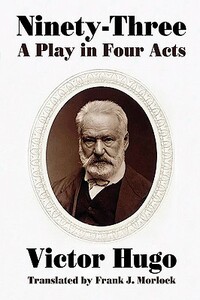You need to sign in or sign up before continuing.
Take a photo of a barcode or cover
dark
emotional
reflective
medium-paced
Plot or Character Driven:
A mix
Strong character development:
Complicated
Loveable characters:
No
Diverse cast of characters:
No
Flaws of characters a main focus:
Yes
This is pretty typical of the author's work and I love it. It's full of hard hitting moments, as well as themes and messages, you can notice Hugo's Interessent in history which never romanticizes it and he loves to bring back characters, relationships and mirrored situations throughout the book, all things I already loved in Les Mis.
While he never makes you feel for or lets you know a character in the same way we expect from modern books, he still explores and characterizes them so well. He isn't afraid to have good actions with bad consequences or questionable characters do good things, while still staying on theme and supporting his moral views. While it can be descriptive for a short time and a part in the middle was a bit less exciting, I was incredible intrigued by everything going on. I just adore Hugo's plots and writing and this might be a new favourite for me, other than Les Miserables of course.
While he never makes you feel for or lets you know a character in the same way we expect from modern books, he still explores and characterizes them so well. He isn't afraid to have good actions with bad consequences or questionable characters do good things, while still staying on theme and supporting his moral views. While it can be descriptive for a short time and a part in the middle was a bit less exciting, I was incredible intrigued by everything going on. I just adore Hugo's plots and writing and this might be a new favourite for me, other than Les Miserables of course.
Victor Hugo had a large influence on 19th century literature, "The Hunchback of Notre Dame" is still quite readable and "Les Miserables" has even been made into a musical. Like most 19th century novels the pacing of "Ninety-Three" is very uneven, there are large digressions where the role call of revolutionaries is called out and the extremely long description of La Torgue. It's easy to lose track, indeed even to figure out who the main characters are until you reach the ending. From a 21st century perspective, the characters seem a bit too clear cut and idealized, but still engaging. This novel takes place in 1793 which is the height of "The Terror" and one of the bloodiest periods in French history and it does a fair job of portraying this.
The edition I read was based on a 1908 translation, but it's still scans well. A more modern edition would probably have far more footnotes.
It would be interesting to contrast this work with "The Tale of Two Cities", one wonders if it inspired Hugo. The last bit of "Ninety-Three" where Lantenac is allowed to escape and Gauvain executed in his stead with his judge and father figure Cimourdain commits suicide is heartrending and a perfect cap to a novel about The Terror and very similar the the work by Dickens.
The edition I read was based on a 1908 translation, but it's still scans well. A more modern edition would probably have far more footnotes.
